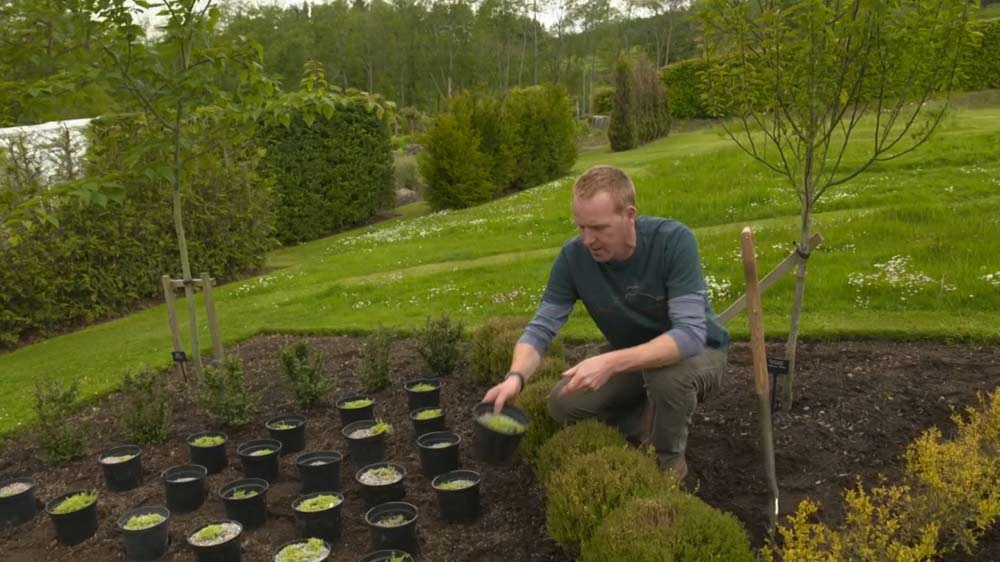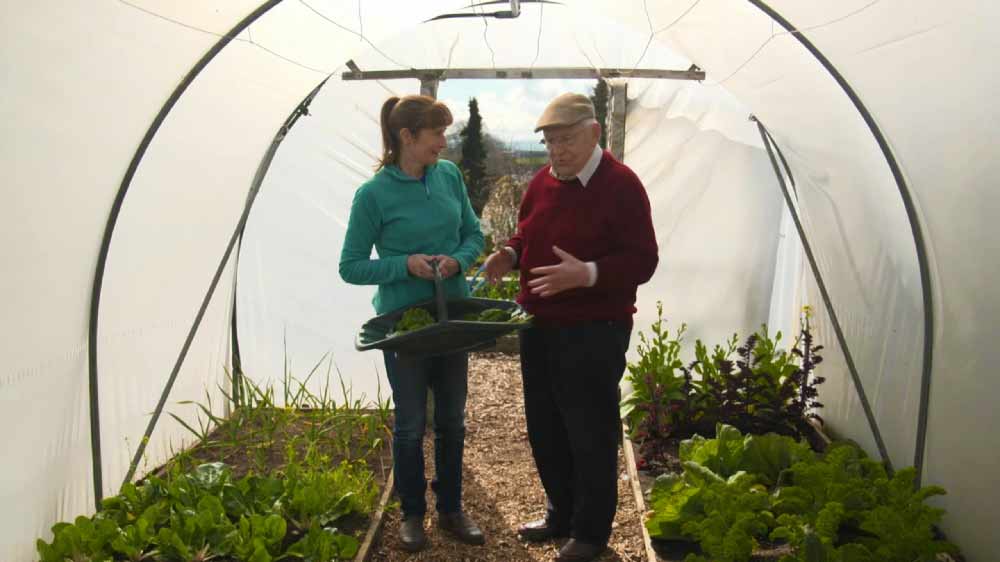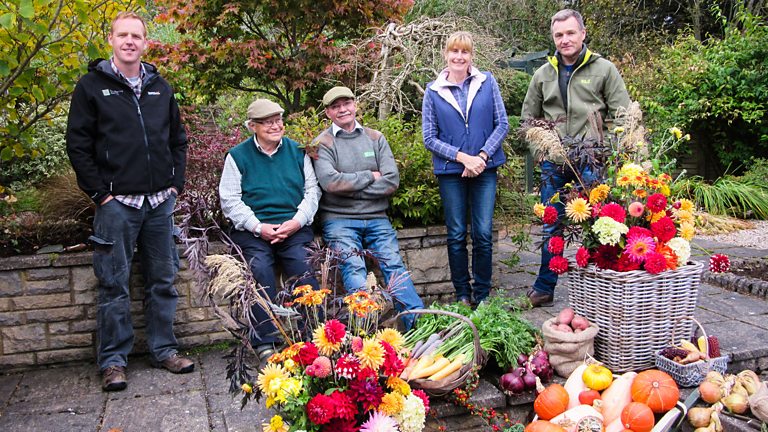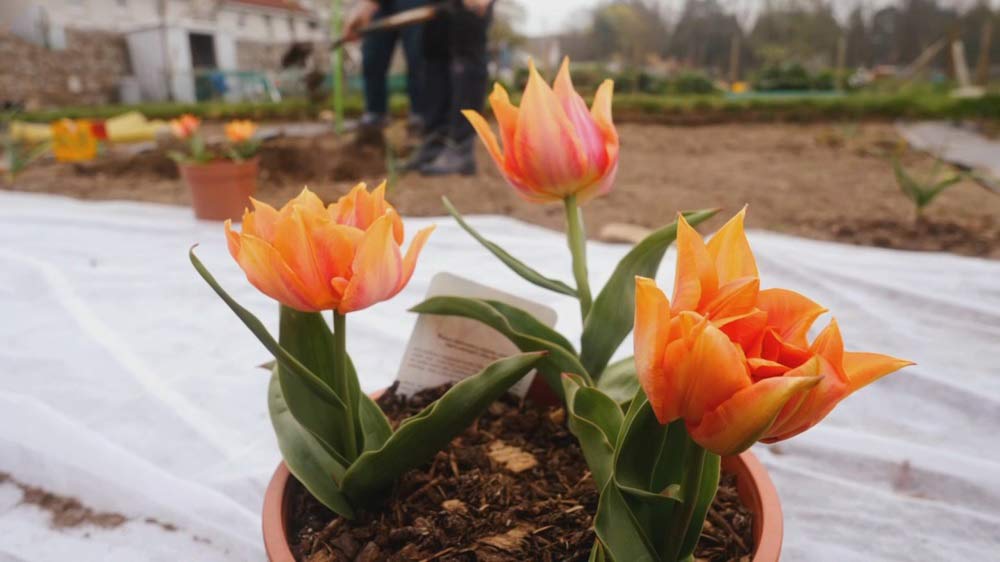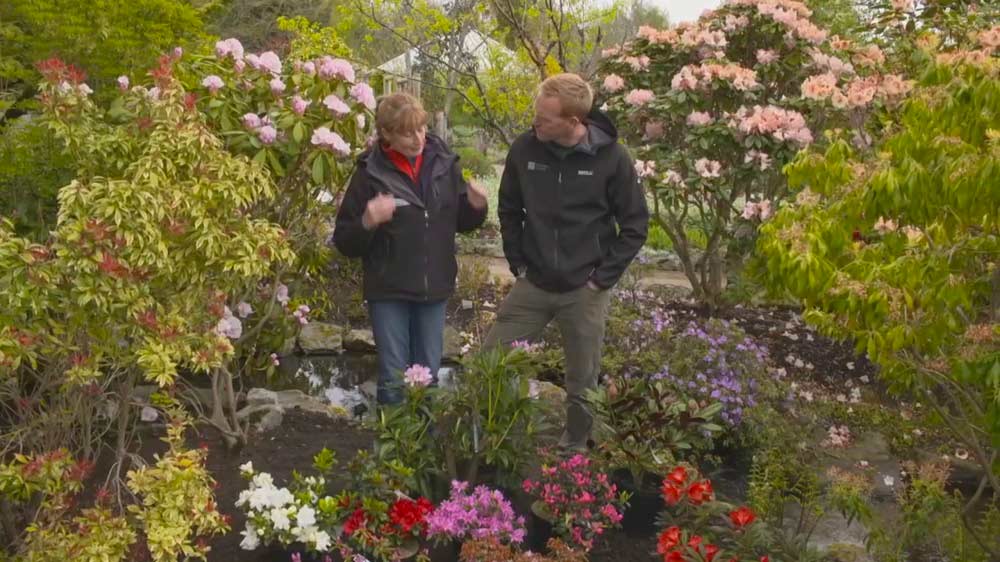This week on Beechgrove Garden episode 6 2019, George is in the fruit cage rescuing the raspberries, while Carole plants brassicas and beans in the veg plot. A garden that needs little attention while still looking attractive is a constant request. Brian takes an in-depth look at what makes the Low Maintenance Garden at Beechgrove.
Following the theme of low maintenance in a very different way, George visits Iris Jarret’s unconventional garden in Wormit. Iris’s garden is an unashamedly untamed, self-maintaining but delightful garden overlooking the Tay.
The Beechgrove Garden episode 6 2019
How to grow raspberries
Raspberries are popular garden fruits that are easy to grow. Try growing both summer and autumn-fruiting varieties: just a few plants will reward you with plenty of fruit from midsummer until mid autumn. If you end up with a glut, raspberries also freeze well, and make wonderful jams, sauces and cooked desserts.
Raspberries thrive in moisture-retentive, fertile, slightly acidic soils, which are well-drained and weed free. They dislike soggy soils and shallow chalky soils. For best results, plant in a sunny position (although they will tolerate part shade). Ideally, site your rows running north to south, so that they do not shade each other.
Crop rotation
The principle of crop rotation is to grow specific groups of vegetables on a different part of the vegetable plot each year. This helps to reduce a build-up of crop-specific pest and disease problems and it organises groups of crops according to their cultivation needs.
Crop rotation is used in allotment plots and kitchen gardens for most annual vegetable crops. Perennial vegetables (such as rhubarb and asparagus) do not fit into the rotation. Certain annual crops such as cucurbits (courgettes, pumpkins, squashes, marrows and cucumbers), French and runner beans, salads (endive, lettuce and chicory) and sweetcorn can be grown wherever convenient, merely avoiding growing them too often in the same place.
